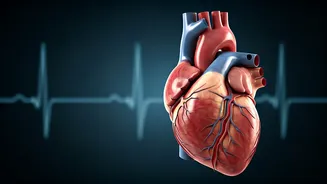Exercise's Crucial Role
Regular physical activity plays a pivotal role in regulating blood pressure, according to the cardiologist. Engaging in consistent exercise helps strengthen
the cardiovascular system, making it more efficient at pumping blood. This increased efficiency reduces the strain on blood vessels, leading to a natural decrease in blood pressure readings. The benefits extend beyond just the physical; exercise also contributes to weight management, reduces stress levels, and improves overall mood—all of which positively impact blood pressure. The cardiologist's insights highlight that incorporating exercise into a daily routine is a proactive step toward maintaining heart health and preventing hypertension, emphasizing its significance in a comprehensive approach to well-being.
Effective Exercise Types
The cardiologist recommends several types of exercises that are particularly effective for blood pressure control. Aerobic exercises, such as brisk walking, running, swimming, and cycling, are at the forefront, as they consistently improve cardiovascular function. These activities help expand blood vessels and promote efficient blood flow. Resistance training, including weightlifting or using resistance bands, is another key component. Building muscle through resistance exercises helps boost metabolism, and reduces body fat, indirectly contributing to lower blood pressure. Combining aerobic and resistance exercises offers the most comprehensive benefits. The cardiologist advises starting slowly and gradually increasing intensity to ensure safety and prevent injury, emphasizing a tailored approach that fits individual fitness levels and preferences.
Lifestyle Modifications Matter
Alongside exercise, lifestyle adjustments significantly influence blood pressure levels, as discussed by the cardiologist. Diet is a primary area of focus; reducing sodium intake and increasing potassium consumption can help stabilize blood pressure. Eating a diet rich in fruits, vegetables, whole grains, and lean proteins is recommended, while processed foods and excessive fats should be limited. Managing weight through a combination of diet and exercise is crucial, as excess weight places additional strain on the heart. The cardiologist also stresses the importance of stress management techniques such as meditation, yoga, or deep breathing exercises. Regular sleep and avoiding excessive alcohol consumption and smoking are other essential steps. These modifications, when implemented consistently, can lead to substantial improvements in blood pressure and overall well-being.
























